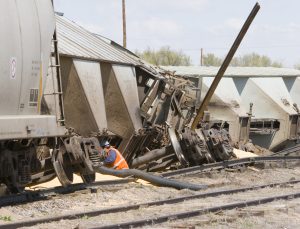A federal investigation has discovered sleep apnea may have played a role in the Hoboken train accident. According to findings from the National Transportation Safety Board (NTSB), the train’s engineer was diagnosed with sleep apnea after the fatal September crash.
People with sleep apnea experience interruptions in breathing while sleeping. This causes someone with the condition to wake up several times per night. As a result, people with sleep apnea can experience excessive daytime drowsiness and problems paying attention. They may unknowingly fall asleep in short bursts throughout the day.
It is unsafe for engineers with sleep apnea to operate trains. Airline pilots with this condition cannot fly until receiving treatment. Other transportation industries should develop similar rules. In fact, the FRA is likely to create rules addressing sleep apnea screening, but the process may take several years.
Should Railroad Companies Test Engineers for Sleep Apnea?
The Federal Railroad Administration (FRA) has called on railroad companies to test engineers for sleep apnea. According to a report by CBS News, some railroad operators already test their engineers. Metro-North in New York, a company that tests its engineers, has found 1 in 9 of its train operators suffer from sleep apnea.
Train operators diagnosed with this condition can receive treatment with continuous positive airway pressure (CPAP). CPAP uses an air pump and face or nasal mask to keep the airway from closing. The National Sleep Foundation claims most people who use CPAP experience immediate relief from symptoms.
People cannot receive treatment if they remain unaware they have this condition. If train engineers do not receive screening and treatment, they will continue to pose a risk to passengers.
The New Jersey personal injury attorneys at Keefe Law Firm are dedicated to holding negligent companies accountable for causing harm to others.

